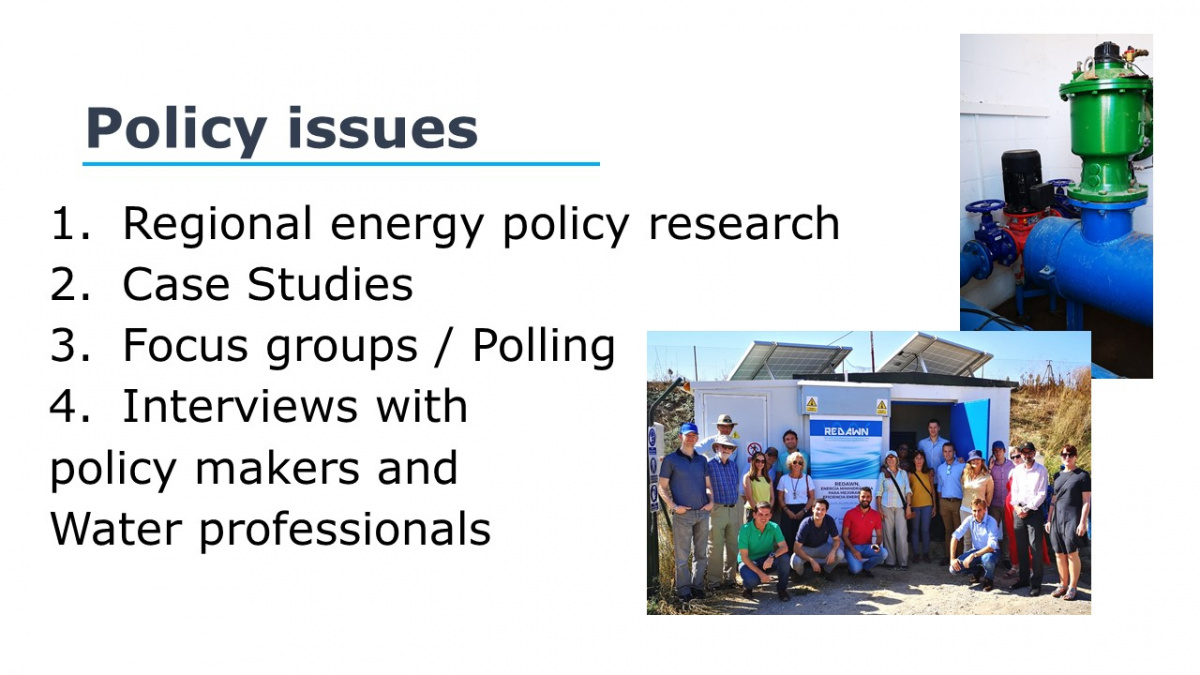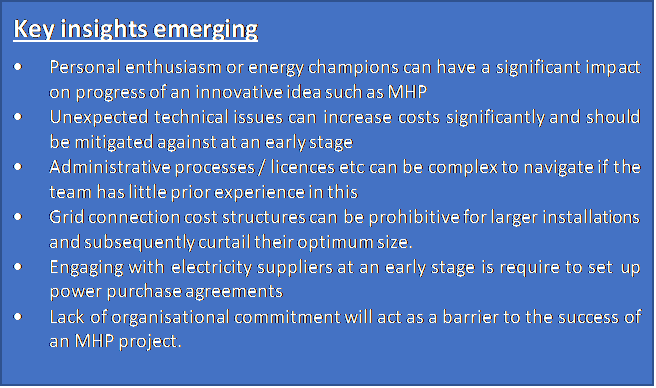WP8: Policy and Social Impacts
WP8: Policy and Social Impacts
Work Package 8: Policy and Social Impacts
LEAD: ACTION RENEWABLES
MHP technology faces a number of non-technical barriers to its implementation in practice. These include: a lack of, or poor economic incentives; disparate water governance policy nationally in the AA; a lack of awareness of the potential positive social impacts of MHP; poor management structures in some organisations to support water innovation. REDAWN proposes to promote and exploit a technical solution to small scale MHP in water networks. However without appropriately addressing the non-technical challenges, this technology will not realise its full potential in the region.
WP8 will enable a more rapid uptake of MHP energy recovery systems in the AA through informing the development of supporting social, institutional, economic and water governance policies. This will facilitate the uptake of MHP through: i) a governance framework to improve the design of related policies; ii) Best practice organisations management models in the 4 water network sectors; iii) Assessment of impact on social factors such as the cost of water for consumers, cost of water on the environment, and corporate social responsibility; iv) Best practice economic policy addressing energy cost, carbon cost, taxation and incentives.
WP8 will be led by AR who will conduct the overarching policy analysis. Trinity Business school will assist in organisations management analysis. While WATEF and FAEN will examined the social and economic aspects respectively.
WP8 - Policy, Institutional and Social Impact outputs
In addition to the technical outputs, REDAWN has proposed a governance framework to improve the design of related policies. It has produced best practice organisation models for the four main water network sectors. It has explored social factors including quantifying the social return on investment. These outputs compliment the best practice economic policy framework which address energy cost, carbon cost, taxation, and economic incentives. More detailed information is available in the WP8 report which can be downloaded as PDF here soon.
 |
|
 |

